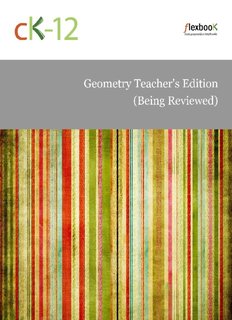Portrayal of Merit vs. Privilege in Scholarship-Themed Novels
Scholarships are often seen as the great equalizers in society—designed to reward intelligence, hard work, and perseverance. But in literature, especially in novels centered around education and opportunity, the concept of merit is often complicated by the enduring influence of privilege.
In these stories, access to scholarships and academic success is not always as straightforward as meritocracy suggests. Instead, characters must navigate complex intersections of class, race, gender, geography, and power.
This post explores how novels with scholarship themes portray the ongoing tension between merit and privilege. From African and diaspora literature to Western young adult fiction, authors frequently challenge the romanticized idea that merit alone determines who succeeds. Through their characters and plotlines, these novels highlight how privilege can both obstruct and mimic merit, complicating our understanding of fairness in educational systems.
The Illusion of Meritocracy
In many novels, the scholarship system is framed as a way out—a lifeline for the deserving poor. But even in these narratives, authors often emphasize how those perceived as "deserving" are shaped by privilege in subtle or overt ways.
In Tsitsi Dangarembga’s Nervous Conditions, Tambu’s access to education comes after the death of her brother, whose tuition had been prioritized by the family. When she’s offered a scholarship to a mission school, it seems like a merit-based achievement. However, the decision is less about merit and more about familial connections and obligation—her uncle is the school headmaster, and her family views the opportunity as a legacy owed to them. Tambu is intelligent and hardworking, but her access to that scholarship is as much about who she knows as it is about what she knows.
This is one of the first cracks in the myth of pure meritocracy: while merit is important, it often needs to be combined with access to opportunity—something many others of equal intelligence may never receive due to lack of connections or social capital.
Who Gets to Compete?
In many African and diaspora novels, authors highlight that not everyone starts the race at the same starting line. The disparity in access to preparatory resources—like good schools, books, tutors, and safe study environments—means that the competition for scholarships is skewed from the outset.
In Chimamanda Ngozi Adichie’s Purple Hibiscus, Kambili and her brother Jaja attend the best schools in Nigeria thanks to their wealthy father's resources. They excel academically and are often praised for their discipline and performance. But their success is built on a foundation of privilege, even though Kambili’s internal world is shaped by fear and repression.
Compare their experience to that of their cousins who live with fewer resources and attend underfunded schools. Even if those children are equally intelligent, they’re not given the same competitive edge. This contrast demonstrates how privilege can disguise itself as merit, leading society to praise those who succeed without acknowledging the advantages that smoothed their path.
Scholarships as Social Currency
In some novels, scholarships are not only a means to education—they are a social badge. The prestige associated with being a scholarship recipient elevates characters' status, but it also comes with burdens, expectations, and moral dilemmas.
In Chinua Achebe’s No Longer at Ease, Obi Okonkwo is awarded a scholarship by the Umuofia Progressive Union to study in England. The community pools their resources for him to become an educated elite who will return and serve the people. However, Obi’s time abroad exposes him to Western values and deepens his alienation from traditional expectations.
His academic success is rooted in merit, but it is also tied to his community’s investment, which gives him privilege over others who may be equally intelligent but lack sponsorship. Once back in Nigeria, Obi’s moral decay and descent into corruption reveal the fragility of merit when privilege, pressure, and expectation collide. The novel critiques the assumption that academic merit guarantees moral or professional success.
Western YA Novels: Access and Anxiety
In Western young adult (YA) fiction, the scholarship versus privilege dynamic is often set against the backdrop of elite private schools or Ivy League dreams.
In E. Lockhart’s We Were Liars, while the story centers on wealth and family secrets, the absence of scholarship characters draws attention to how privilege insulates itself. The Sinclair family, steeped in generational wealth, sends their children to elite schools without question. Those outside this system are invisible, suggesting a world where merit is irrelevant because wealth rules.
In contrast, in Nic Stone’s Dear Martin, protagonist Justyce McAllister is a brilliant Black student at a predominantly white prep school. He’s there on scholarship and constantly reminded of his outsider status. Despite his intellect and achievements, Justyce faces microaggressions and systemic racism that privilege cannot shield him from. His journey underscores how even when merit earns a place at the table, social privilege dictates who is truly welcome.
The Double Burden of “Merit”
Scholarship students in many novels carry what could be called the double burden of merit: they must not only succeed academically but also prove that they "deserve" to be where they are—constantly justifying their presence.
In Imbolo Mbue’s Behold the Dreamers, Jende and Neni Jonga are Cameroonian immigrants in New York. Neni, a scholarship student, dreams of becoming a pharmacist. Her academic journey is admirable, but it is layered with anxiety about immigration status, finances, and identity. Her white peers, who may be less capable, don’t face the same scrutiny or emotional strain. This reveals that merit doesn't erase structural barriers—it often just coexists with them.
Similarly, in Ayobami Adebayo’s Stay With Me, education is portrayed as a dream, one that is often deferred due to patriarchal pressure or family obligations. For female characters, the pursuit of scholarships or academic goals is interrupted by cultural expectations. Merit becomes irrelevant when privilege—especially gendered privilege—determines who gets to pursue an education at all.
Education as a Proxy for Worth
In scholarship-themed novels, characters are often judged not only by their academic merit but by how well they align with societal values. This is especially true for characters from marginalized backgrounds who receive scholarships: they are expected to be grateful, humble, hardworking, and "representative" of their community.
This theme is evident in Andrea Levy’s Small Island, where Jamaican immigrants in postwar Britain pursue better lives through education and employment. The unspoken rule is that any success they achieve must be accompanied by gratitude and compliance—as if the opportunity is a favor rather than a right.
Characters like Gilbert and Hortense work hard to prove they deserve their place in a society that remains hostile. Their intelligence and ambition are undeniable, but they face constant reminders that privilege—not just merit—still governs access and acceptance.
Breaking the Cycle
Despite these tensions, many novels still depict characters using scholarships to challenge the status quo. In these stories, education is both an escape and a weapon—a means of rising above circumstance and, at times, of dismantling oppressive systems.
In The Hate U Give by Angie Thomas, Starr Carter lives in a poor Black neighborhood but attends a wealthy white school on scholarship. Her dual existence reveals how education straddles lines of privilege and protest. Her awareness of racial injustice is sharpened, not dulled, by her elite schooling. Unlike older narratives that idealize assimilation, this story uses the scholarship trope to empower resistance, not compliance.
This modern take suggests a shift in literature: where once merit had to bow to privilege, it now increasingly challenges it. Characters demand space not just to succeed academically, but to exist authentically and reshape the systems that previously excluded them.
Conclusion: Unpacking Fairness in Fiction
The portrayal of merit vs. privilege in scholarship-themed novels reveals a deep unease with the myth of equal opportunity. While literature continues to celebrate the triumph of the underdog, it also increasingly questions whether the playing field was ever truly level.
Key takeaways from these narratives include:
-
Merit needs access: Intelligence and hard work are important, but without opportunity, they may never be recognized.
-
Privilege mimics merit: Wealth and connections can often be mistaken for talent, skewing perceptions of who is "deserving."
-
Scholarships are political: They are not just academic tools but symbols of power, exclusion, and expectation.
-
Literature reflects reality: These novels mirror the tensions in our societies, where meritocracy is idealized but rarely realized.
Ultimately, scholarship-themed fiction invites readers to think critically about fairness, access, and justice. It pushes us to ask: Who gets the chance to succeed—and who is still waiting at the gate?







